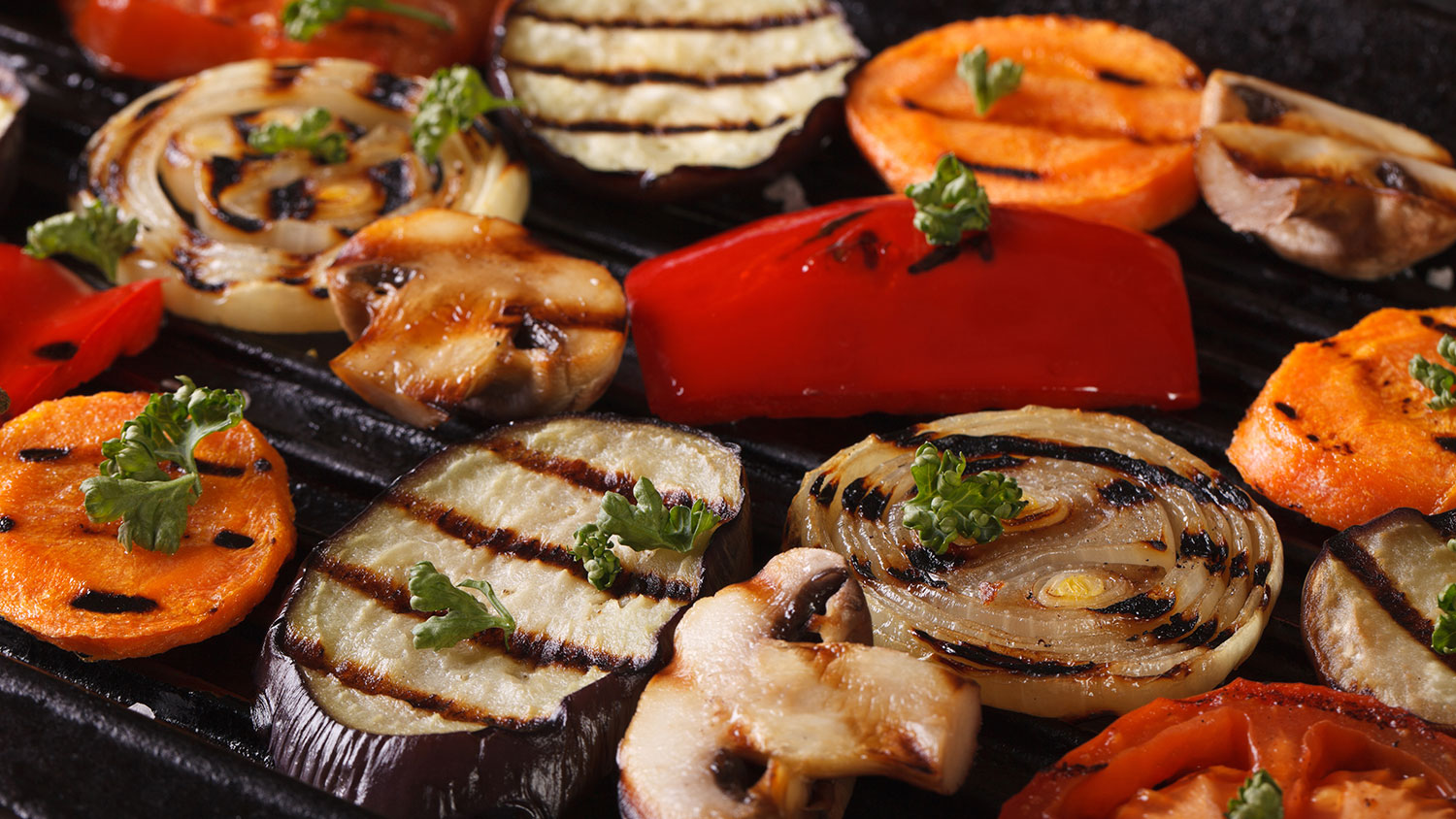Q.I am a vegetarian but still love to grill (veggies and pizza, now that brats and chops are a matter of the past). My charcoal grill is too small for more than two people’s meals. Should I buy a gas grill? Is either less polluting than the other? Should I simply give up and cook indoors?
Christine H.
Kirksville, Mo.
A.Dearest Christine,
What is it about cooking outdoors that makes food taste so extra-delicious? Is it a connection to our caveman ancestors, roasting their mastodons over an open fire? A throwback to the hot dogs and pool parties of childhood? The competitive juices that flow from having to battle backyard flies and bees for your meal? Whatever it is, our love for the BBQ seems universal. My nose tells me so every time I step out in the evening between Memorial Day and Labor Day.
Naturally, you want your piece of the grilled pizza pie, Christine. And you’re already ahead of the game, planet-wise, by choosing only vegetarian meals, which beat steaks and burgers in terms of carbon and water footprints. But you could be doing even better when grilling your greens. Let’s fire it up and take a look.
You asked if gas and charcoal grills differ in how much they pollute – and yes indeed, they do. If we’re talking just localized air pollution, gas barbies (whether they’re fueled by natural gas or propane) come out way ahead of their briquette-burning brethren. Burning conventional charcoal releases nasty volatile organic compounds (VOCs) and particulate matter into the air around your grill, where they can potentially waft into the noses of anyone standing nearby and cause all kinds of problems. (And here we thought ants were the worst uninvited guests at a picnic.) What’s more: Charcoal also emits ground-level ozone, the main contributor to smog.
Gas grills also beat charcoal grills when it comes to carbon emissions: A widely cited Oak Ridge National Laboratory study calculated that a gas burner emits about 5.6 pounds of carbon dioxide per hour, compared to 11 pounds per hour for cooking over the coals. And production efficiency? Gas wins again. About 90 percent of propane makes it out of the production process as useable fuel, whereas only 20 to 35 percent of the source wood ends up as a charcoal briquette (the rest burns off into the air). Propane and natural gas are nonrenewable petro-products, true, but they keep the air cleaner – and the climate cooler – than charcoal. Omnivores may lament the loss of that smoky charcoal taste when cooking meat with gas, but I personally don’t notice much of a flavor difference.
Before you go running off to buy a gas-fired cooker, Christine, let me mention a few other alternatives in the world of backyard cuisine. Electric grills can be an excellent option – if your energy comes from green sources, such as wind, solar, or even hydro. (If not, they emit the most carbon of them all.) If you just can’t quit lighting some kind of wood on fire, consider the niche-but-nice pellet grill: Like pellet stoves, these contraptions run on compressed wood nuggets and burn more efficiently and cleaner than charcoal, though they do require a little electricity. The pellets usually come from sawdust or other waste wood, and they don’t contain the funky additives that give charcoal smoke its noxious quality. But you can get some of charcoal’s woodsy taste with flavored pellets (mesquite! hickory!).
In sum, Christine, I recommend moving on from your little briquette belcher to a durable gas grill, or maybe an electric or pellet grill. But if you can’t swing the upgrade yet, or simply must smolder some charcoal under your corn on the cob, here are some tips for doing so in the greenest way possible. (Hint: Go for lump charcoal and ditch the lighter fluid.) And when you’re done, reuse the charcoal. No matter what you’re burning, cook efficiently to minimize your fuel use.
Oh, there is one thing you don’t have to worry about: Turning your summer cookout into a cook-in. Gas grills tend to be more efficient than ovens. And in summer, ovens heat up the house, forcing your AC or fans to work harder and use more electricity. So go ahead and enjoy your open-air veggie pizzas. Just watch out for those bees – and don’t be surprised if my nose leads me over to your yard to see what smells so good.
Low-and-slowly,
Umbra




